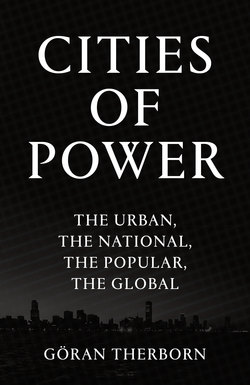Читать книгу Cities of Power - Göran Therborn - Страница 11
На сайте Литреса книга снята с продажи.
4 National Foundations: Nationalizing Colonialism
ОглавлениеAbout half of all current United Nations member states emerged from European colonial rule, not counting states that seceded from European settlements which I have dealt with in the previous chapter. Emancipation from European colonialism is the most common route to a modern nation-state. It had better not be mistaken for a uniform background. In the early twentieth century, the British colonial administration distinguished more than forty categories of overseas territories of the British Empire.1 However, for our purpose of understanding something about the capital cities of post-colonial nation-states, we have to find some common denominator.
The ideal typical modern colony is, first, an overseas territory with a population of a quite different culture than that of the ruling country. In other words, typical colonial rule is rule from a long distance, geographically as well as culturally. Second, colonial rule is based on force, but very significantly also on the claimed cultural superiority of the colonial ruler, which is also deployed as a military, administrative and technological force. Third, part of this claimed and deployed cultural superiority gradually becomes recognized by part of the colonized population. Fourth, colonial emancipation derives its basic dynamic not (primarily) from counter-claims to cultural superiority or even equivalence, but from internal contradictions of the ruling culture – inter alia, its notions of freedom, equality, people/nation, education, merit – and from discriminatory access to it.
